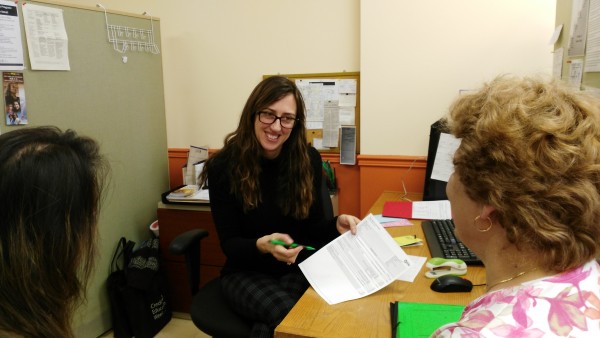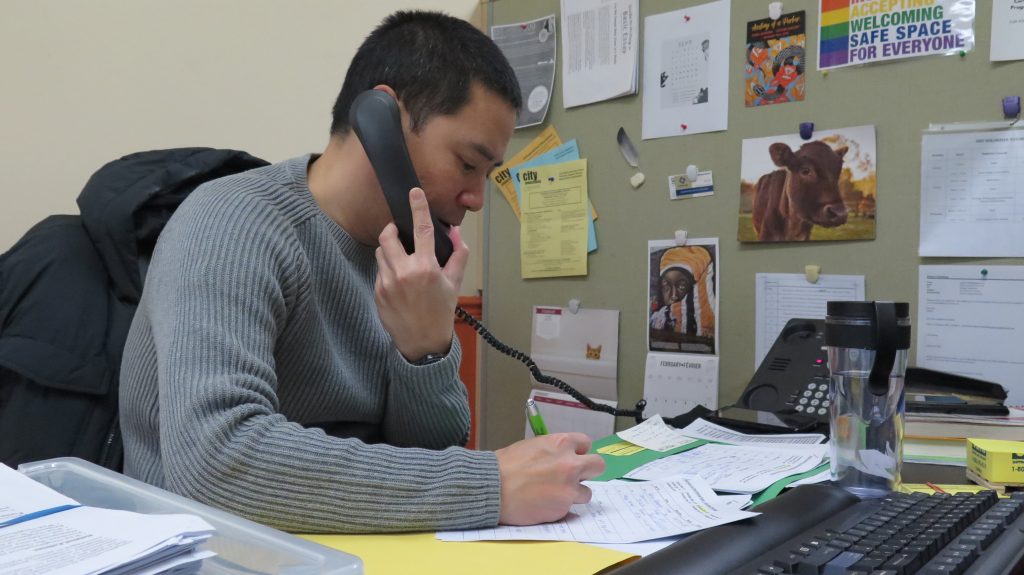Do you have money worries, financial problems or tax questions? The Financial Empowerment and Problem Solving (FEPS) program is here to help!
We help you make informed decisions by providing support, information, resources and training.
COVID-19 update: FEPS is open and accepting new clients. We are currently providing one-on-one tax and money advice over the phone and remotely. All in-person appointments are on pause. Please call 416-848-7980 or email feps@westnh.org to find out more.
Essential Information
What services does FEPS offer?
FEPS enhances people’s ability to take control of their financial lives. We help people in immediate financial difficulty by providing information and discussing choices available and try to enable them to make informed, longer-term financial decisions.
We can help you:
- File tax returns (including tax returns for self-employed and gig workers)
- Get a bank account
- Build assets
- Fill out applications for government and income replacement benefits
- Avoid common scams and financial fraud
- Deal with debt problems
- Get the most out of your personal resources
Who is eligible:
Call 416-848-7980 or email feps@westnh.org to learn more about eligibility and make an appointment.
Where:
Over the phone and remotely
When:
By appointment
Cost:
Free
How to register:
Call 416-848-7980 or email feps@westnh.org to get started and make an appointment.

Frequently Asked Questions
What else does the Financial Empowerment and Problem Solving program do?
FEPS provides information and assistance to colleagues in other non-profit community organizations and offers workshops for community members. The program also plays a role in identifying financial policy issues that adversely affect modest- and low-income people, and aims to facilitate positive change. This includes advocacy, developing new financial tools and/or proposing policy alternatives.
Here you can find detailed reports about FEPS:
I am a gig worker. Can you help me with my tax questions?
Yes! Through the FEPS program, we have a project focused on the informal economy, where we provide financial advice to workers who do not have a traditional job or paycheque, like babysitters, ride-share drivers, bicycle couriers, musicians, and people who have small cash-based businesses or do odd jobs.
This work is called “under the table” if workers and employers don’t report it at tax time. But informal is not the same as illegal. Informal economy workers are not tax cheats. In fact, most are struggling and living in poverty.
Through our Financial Empowerment and Problem-Solving program and with generous support from the Metcalf Foundation, we have launched our Informal Economy Project to give modest- and low-income people free one-one-one advice about taxes and money. We’re here to listen and give guidance. We don’t push any specific products or share your information without your permission. You have the right to make decisions about your money. Call 416-848-7980 to make an appointment to get started.
Who is considered modest income?
That depends on how much money you make (in total, from all sources), and how many people are in your household. For a single adult, modest-income is considered $35,000 per year. If there are two people in a household, such as a couple living together, or one parent and one child, $45,000 is the limit. For a three-person household, it is $47,500. After that, allow for $2,500 for each additional person per year. Call to find out if you can qualify.
Can I share information about the informal economy with my community agency?
Absolutely. We have made a series of tip sheets to help community agencies and informal economy workers to learn tax and money information that matters to them. Please feel free to share with anyone who may benefit.
Click here to download a .zip file of all our tip sheets.


